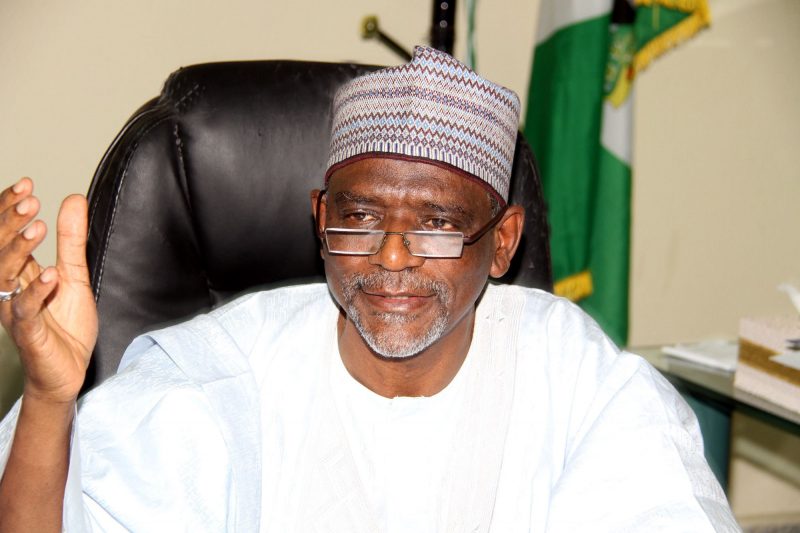Economists use two slightly different concepts to approach education policy: education as a public good and education as a good with positive externalities. All agree that education is a good with positive externalities because it benefits not just the person educated but the society as a whole.
This immediately raises an important question for public policy: if the education of one person benefits all of society, who then should pay for it? This is where matters begin to get a bit more complicated.
For economists, a public good is one in which the provider cannot directly charge the consumer for and also a good which can be enjoyed by many consumers at once.
We all benefit from the security provided by the police and the army, but are not directly charged for it. We all use public roads without paying for it at the point of use, and my use of it does not prevent you from using it too. National security and defence, rule of law, parks and roads are public goods, and are thus paid for by the state through taxation or other government revenues.
Is education a public good in this narrow sense too? If it isn’t, should it be? These are the underlying questions of education policy? Most economists and policy makers agree that basic education (primary and secondary education) is a public good, or should be. It not only benefits the individual and society at large but should also be universally accessible by all and free of charge for all at the point of use.
A country in which 100 per cent of the citizens can read and write and do some basic maths will perform better economically and in every other aspect than one in which only 50 per cent or less of the population have basic education. As the economist and Nobel Laureate, Amartya Sen notes in his more well-known book, Development as Freedom, being able to read and reply text messages is a capability that enriches an individual’s life in ways that go beyond quantification. So, Sen argues, such a capability should be available to everyone in society. This is why literacy and numeracy levels – the most important components of basic education – are themselves indices of human development.
This translates to the policy prescriptions that basic education should be universal, even compulsory in some countries, free of charge at the point of use, and therefore, funded from the public purse without the need to charge individuals directly at the point of use. This does not necessarily rule out private funding for education for those with the means to choose, but it remains the dominant funding model for basic education in almost all countries of the world, including in Nigeria through the Universal Basic Education programme, even if the implementation leaves much to be desired and forces many parents to choose private schooling instead.
Funding tertiary education, on the other hand, is not so straightforward. First, access to university education is not and cannot be universal. Unlike enrollment into a primary school where a child needs only be up to a certain age, admission into university requires meeting some minimum requirements such as JAMB cut-off marks and five WAEC credits including in English Language and General Maths. These requirements automatically rule out millions of young Nigerians, regardless of the number of universities or places available.
Second, in scale, university education does not have the same value for the society as does basic education. A country in which just 50 per cent of the citizens have university education would not be necessarily worse off – economically or otherwise – than a country in which 100 per cent of the population is educated to university level. In fact, only between 15-25 per cent of jobs require university degrees even in the most advanced economies. Just 23 per cent of the 165million strong U.S workforce, for example, had a bachelor’s degree in 2018, according to a report by Georgetown University Centre on Education and the Workforce. For the global population, that figure is down to about seven per cent. By contrast, 90 per cent world’s adult population had completed a primary education and 87 per cent of children are enrolled in it 2020, according to 2020 data by Statista and the UNICEF.
Moreover, a lot of the benefits of university education accrue to the individual in a way that basic education does not in terms of higher opportunities, incomes and social prestige. This is why many economists believe that university education is also associated with negative externalities such as inequality and credential inflation, a situation whereby the value of a credential decreases for everyone because so many people have it. This is precisely the case for Nigeria where graduate underemployment is high and where graduation from the university is often more about the social status it confers than the knowledge and skills gained or actual contribution to societal development.
In other words, while all education has positive externalities, not all education should be treated as a public good. This distinction matters for public policy. If university education is not universally available to everyone, should the cost of it also be paid for 100 per cent by the government by taxing everyone much like basic education? Many economists and education policymakers argue that the cost of university education should at least be shared by both the government and the individual receiving the education. These are the philosophical and policy arguments for university tuition fees. But in the specific case of Nigeria, there is a further argument: the massive socio-economic and demographic changes in the country in the past 30 years or so.
In 1992 or earlier, at least 90 per cent of students in any Nigerian university campus had attended a public secondary school where they paid very little or no fees. Today, the situation has almost been reversed: about 65 per cent of those entering federal and state universities attended private primary and secondary schools, or of ‘privatised’ public schools like the unity colleges, staff schools and the like. The statistics may not exist, but many neigbourhood public primary and secondary schools in Nigeria have not sent even five per cent of their students to university in the past 10 years.
By comparison, 50 per cent (or higher) of those who attended private primary and secondary schools, and the so-called unity schools and staff schools have gained university admission during the same period. The truly poor in Nigeria simply no longer go to the university.
This situation has transformed the question of funding for university education: If majority of the students in the federal and state universities in the country are from middle-income homes (or higher) whose parents paid handsomely for their primary and secondary education, should the government continue to pay for their university degrees 100 per cent? Tuition remains free in Nigerian public universities to this day. Students pay only other charges, which in most cases is not more than N60,000 a year, less than the of fees per term for the average private primary or secondary school across the country.
This is the greatest social injustice of all time, and it is against the genuinely poor who are now excluded from both quality basic education and much chance of any tertiary education.
How then should public universities in Nigeria be funded henceforth? This final question is important because it is at the heart of all the face-off between the Academic Union of Universities (ASUU) and the federal and state governments who own, but cannot fully fund the public universities. But the answer lies in three alternative funding mechanisms.
First, it is time to introduce some tuition fees into the public university system, capped at say between N250,000-N500,000 over the next 10 years. Consider a university with 10,000 students. A tuition fee of N300,000 a year will provide the university with additional N3 billion a year of funding. When this is added to what public universities receive from the Tertiary Education Trust Fund (TETFund), which in some years goes above N1billion a year – which is minus payment of salaries – the typical university would have enough to pay for expanding teaching and learning facilities, research and academic staff development, the real thing universities need.
Second, tuition fees don’t have to be paid for upfront. They can be borrowed and paid for later over the course of one’s career at government legislated interest rates and a provision that repayment can only start if the borrower earns a certain minimum annual salary, say N1.2 million. If a student borrows N2 million for tuition and living expenses at a fixed interest rate of say 20 per cent over the course of a four-year degree programme, the student can pay back the total N2.4 million owed over say a 20-year period, translating to about total repayment of N10,000 monthly from a salary of N100,000 per month. Those who don’t earn that much would not need to pay, yet.
Third, universities would need to diversify their funding sources. Older universities can tap into a sea of funding from their alumni. For example, older universities can launch an alumni funding scheme whereby each former graduate is required to pay just N1,000 a month. If properly communicated and utilised, many former graduates of the school will enroll. Thus, a university with 10,000 enrollees into such a scheme will attract additional N120 million a year, enough to cater for the entire library needs of Ahmadu Bello University, to give a single example. Of course, many alumni will be happy to pay more.
Fourth, universities can attract additional funding from many international governmental and non-governmental organisations operating in the country and beyond. Nigeria does not receive much foreign aid, but with the right know-how, the average university should be able to attract $1 million dollars or more from the thousands of sources available across the world. Quite a few local non-governmental organisations in Nigeria attract this much yearly, why not the universities? You really don’t always need a big man or big government to do everything.

 Join Daily Trust WhatsApp Community For Quick Access To News and Happenings Around You.
Join Daily Trust WhatsApp Community For Quick Access To News and Happenings Around You.


